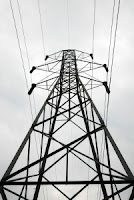Energy consumption in our homes, businesses, trades and industries is, as the major studios, more than actually needed. Through the implementation of savings, measures recommended after an energy audit would be able to reduce consumption by a significant percentage, without reducing the comfort you need. But where do you start?
By the following questions and answers, explained in an understandable way and step by step details of the energy audit c rear offers its customers.
What is an energy audit?
The energy audit is the tool that is based on a structured plan for energy savings. The energy audit involves performing a task of information gathering, analysis, classification, proposed alternatives, quantifying savings and decision making.
Furthermore, to our energy audit meet the quality standard of the standard UNE 216501 "energy audits" by the Technical Committee for Standardization 216, AENOR. This quality standard is one of the first taking place in the world.
You can see the pilot implementation of this standard: Expansion newspaper story
When we think about an energy audit?
If we believe in a certain place:
• Inefficient appliances are used
• takes place a small equipment maintenance
• is no loss of heat or cold by poor insulation
• There is a lack of adequate consumer habits
What is being analyzed in an energy audit?
Analyze the place to be audited thoroughly with the aid of measuring equipment and perform an art installation energy audit:
• habits
• heating and cooling equipment
• electrical equipment
• lighting equipment
• insulation installation
Will I know how much I can save with an energy audit?
After analysis, our technical team drafted a package of measures to correct the excessive energy consumption. Each of the steps is broken down by energy savings, economic savings would result, the investment required to implement and economic payback.
Residential and tertiary buildings
• Saving rate: 15-25% (without introducing solar thermal)
• Simple payback period: 2 to 4 years
• Runtime audit: 1 month
Street Lighting
• Saving rate: 25-35%
• Simple payback period: 3 to 5 years
• Runtime audit: 1 month
Industrial plants
• Saving rate: 5-20%
• Simple payback period: 10 years
• Runtime audit: 1 to 3 months
Shops
• Saving rate: 15-25%
• Simple payback period: 3 to 5 years
• Runtime audit: 1 month
Hotels
• Saving rate: 20-30% (without introducing solar thermal)
• Simple payback period: 2 to 4 years
• Runtime: 1 month



0 comments:
Post a Comment